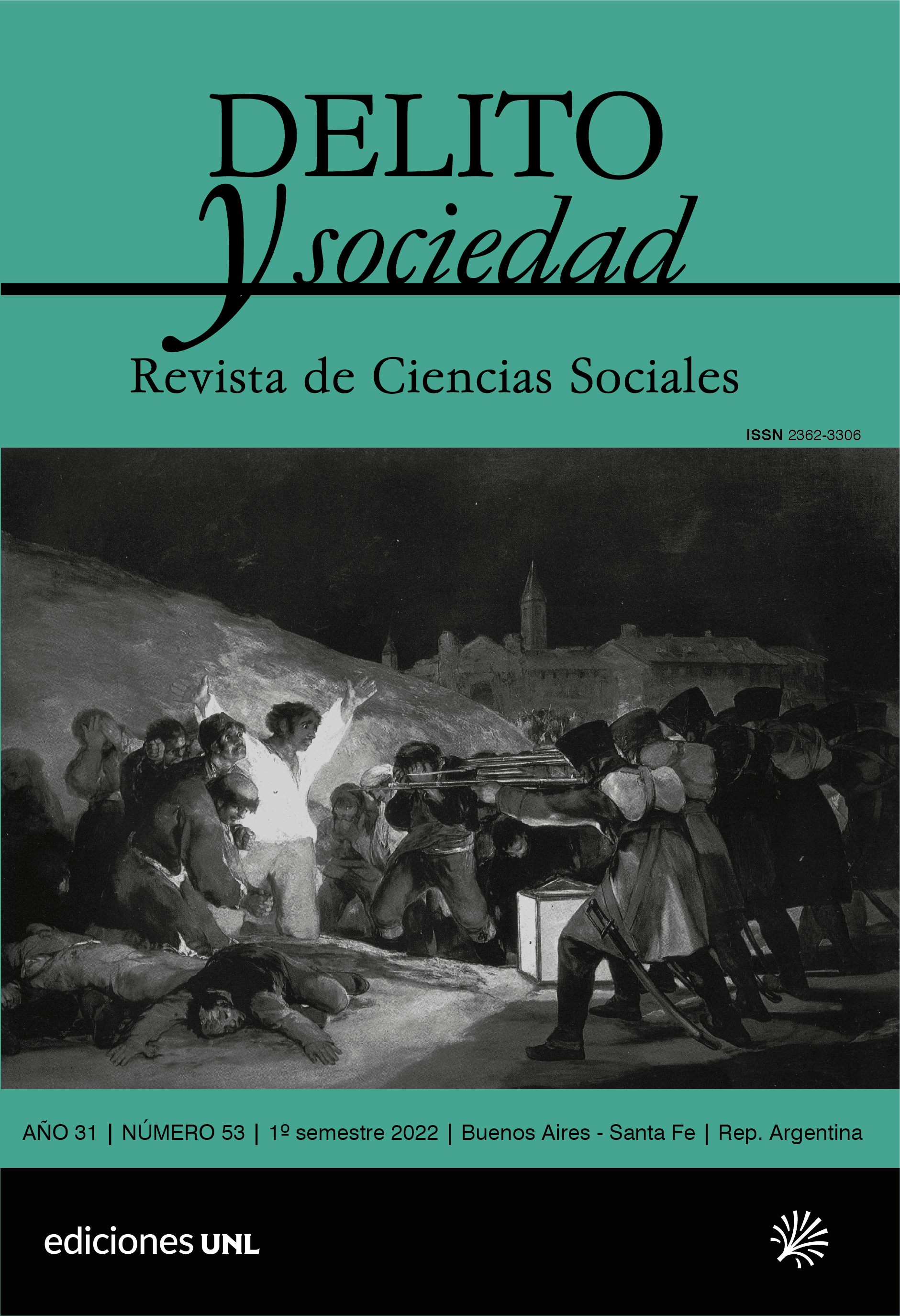El «preso-emprendedor». Responsabilización y co-gobierno en la prisión de Punta de Rieles en Uruguay
DOI:
https://doi.org/10.14409/dys.2022.53.e0058Palabras clave:
Cogobierno, Responsabilización, Prisión, UruguayResumen
Este artículo se centra en el «preso-emprendedor» como agente en las relaciones de gobierno en una prisión de varones en Montevideo, Uruguay. Se trata de Punta de Rieles, una prisión atípica en la que la responsabilización de los presos juega un papel fundamental como estrategia de gobierno desplegada por las autoridades y agentes estatales para responsabilizar a los reclusos de desarrollar, con amplios niveles de autonomía, una gama abierta de actividades promovidas oficialmente. Entre ellas destaca la producción de bienes y servicios. La mayoría de estas actividades se generan a partir de iniciativas de los presos. Para obtener la autorización y el apoyo de las autoridades penitenciarias para llevarla a cabo, se anima a los privados de libertad a diseñar el proyecto de actividad productiva y redactar una solicitud formal. Este «preso-emprendedor» ocupa una posición singular en la población de esta institución carcelaria. Está sujeto a responsabilización, se le pide que haga un «uso positivo» del tiempo y que desarrolle formas de autogobierno. Sin embargo, simultáneamente, como «empleador" de otros presos, se convierten y actúa como agente de gobierno y estructura el campo de acción del «preso-empleado». A su vez, este rol gubernamental implica toda una serie de relaciones colaborativas, pero también conflictivas con los agentes estatales, especialmente con los guardias. Este trabajo aborda la peculiar posición del «preso-empresario» en cuanto a su rol gubernamental y sus vínculos con los agentes del Estado, como forma única de gobierno en esta prisión no tradicional latinoamericana.










